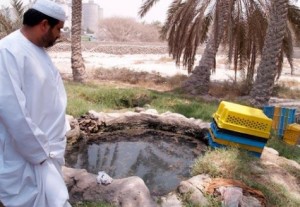Economist Intelligence Unit press release | 30 March 2010
Qatar
The regional economic slowdown has temporarily reduced the risk of power cuts and water shortages, but the GCC states need to move fast to improve the management of power, water and food resources in order to forge a more sustainable growth path.
Inefficient energy and water consumption has significant economic costs, while the possibility of future food price spikes poses an inflation risk to an import-dependent region. These issues are assessed in detail in a new in-depth study, The GCC in 2020: resources for the future, written by the Economist Intelligence Unit and sponsored by the Qatar Financial Centre Authority.
The main findings of the research are:
• GCC governments are overhauling the way they manage hydrocarbons. Most governments plan to reserve a greater proportion of crude oil to produce value-added and refined products for export, and to use natural gas to fuel power plants.
• Conservation of electricity and gas is a must. Blackouts and brownouts are already common during peak times, and energy subsidies represent an increasing cost for GCC governments. While governments realise that current consumption patterns are not sustainable, curtailing subsidies remains a political challenge.
• Investment in renewable fuels is on the rise. To diversify their economies and benefit from increased global demand for renewable fuels, GCC states will invest in alternatives such as solar and nuclear power. These resources will help them to meet the shortfall in electricity supplies, and free up oil and gas for export.
• Investment in minerals development is rising, with foreign companies also playing a role. Alongside investments in energy, GCC governments are investing more in exploiting non-oil minerals such as gold, silver, iron ore, copper and bauxite. The aim is to diversify economically and create jobs.
• The region faces potentially serious water shortages. Rising temperatures and expanding populations will place increasing pressure on the Gulf's water supplies, which are already heavily reliant on desalination. At present, the vast majority of water goes into agriculture, a sector that provides less than 5% of GDP. Water use will need to be urgently addressed.
• Investments in farmland abroad are needed to ensure food security, but must be structured carefully to avoid conflicts with host governments. Among the risks to be managed in such investments are: ensuring a transparent land valuation and transfer process, ensuring a broader range of stakeholders than just governments, providing clear and visible benefits for local communities, and respecting the host country's trade rules and export regulations.
The GCC in 2020: Resources for the future is the third in a series of four reports that examine the likely themes in the development of the GCC economies to 2020. The first report predicted that the GCC will grow in importance as an economic and trading hub, making it an increasingly important trading partner as well as investor in Asia and Africa. The second report looked at the population mix of the GCC and concluded that demographic trends, while presenting some major challenges, will support the region's increasingly pivotal role in the global economy. The fourth and final report, to be published later in 2010, will consider the prospects for diversification into non-hydrocarbons industries, and the progress that GCC countries have made in this regard so far.
EIU_GCC_in_2020












